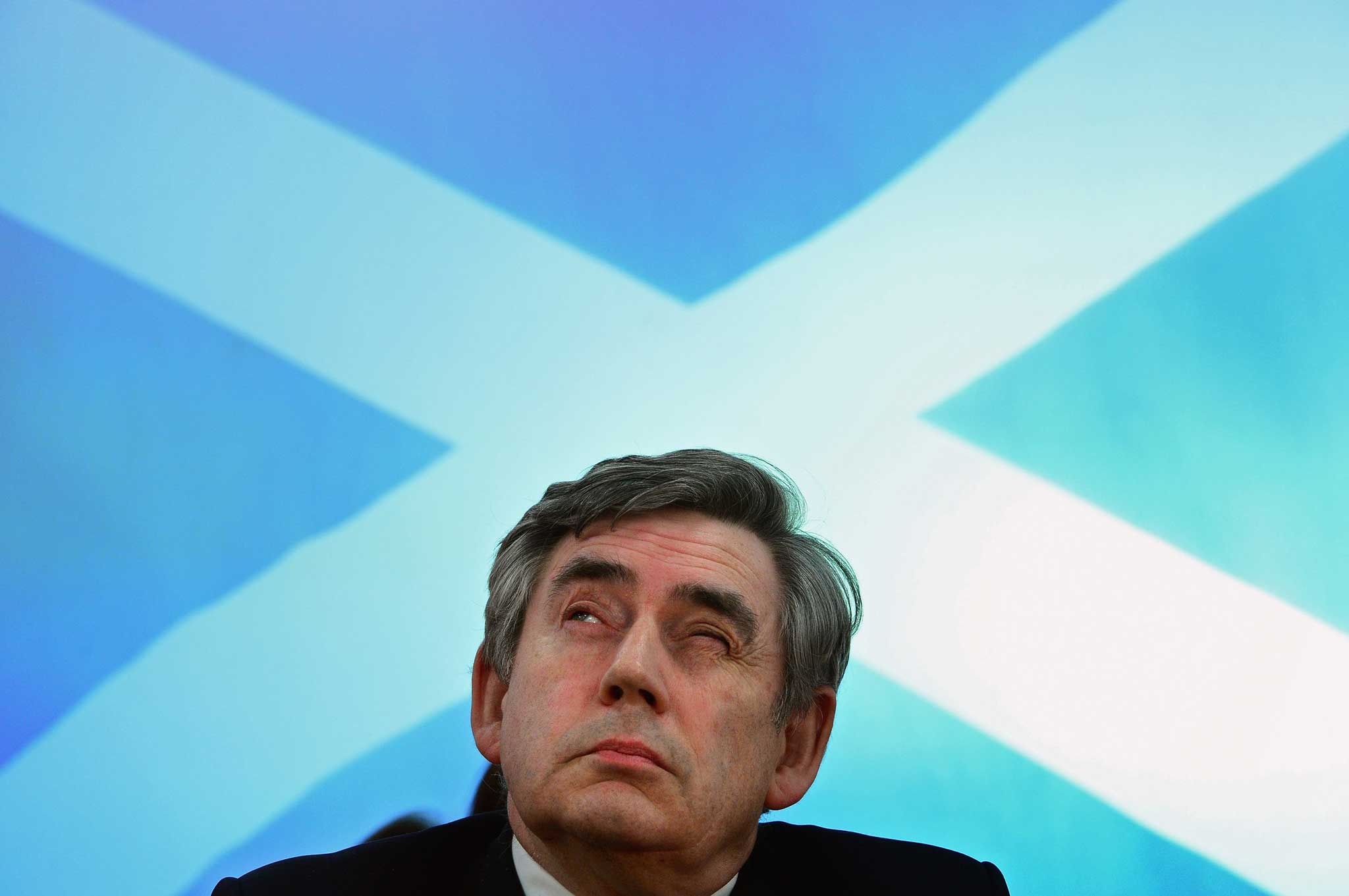My Scotland, Our Britain by Gordon Brown, book review: Homage to home country reveals more of the man than the manifesto

"This is not a political manifesto," insists Gordon Brown at the conclusion of his predictably slanted contribution to the referendum debate. This is true. Perhaps his argument for Scotland staying in the UK would have benefited from a bit more political grit. His book is, however, heartfelt, well-informed and persuasive – if you can stay the course. Unfortunately, its relentless didacticism will have limited appeal, especially among the 98,000 16 and 17-year-olds whose votes may be crucial.
There are signs that Brown attempted to moderate his deep seriousness but, as we all know, subtlety is not his strong suit. Starting with a cameo of wrapping his children's Christmas presents, he declares, "As a patriotic Scot I cannot opt out of a debate and decision that affects children whom I love and people whom I respect." In further solemn conjunctions, he points out that "Scots have succeeded in fashioning the future again and again by resisting the temptation to be isolationist or exclusionary", though readers may be perplexed by his example of how "John Logie Baird developed the TV not from his home in Helensburgh, Scotland, but from Hastings in Sussex."
Similarly, his list of Scottish successes in Britain – "a Scot, James Thomson authored 'Rule Britannia' in 1740; a Scot led the formation of the British Labour party; a Scot became the first Director-General of the BBC. One third of Prime Ministers have been Scots" – is unlikely to sway many. The same goes for Brown's obeisance to the Royal Family (a traditional trait of Labour leaders), which he claims is "almost universally popular and appreciated in every part of Scotland", though this is scarcely confirmed by his previous sentence about a poll finding that 55 per cent of Scots were "not proud" of the Windsors compared to 17 per cent in England.
The ex-PM is on firmer ground when he turns to his home turf of detailed economic analysis. We learn that the tax receipts from North Sea oil are set to decline from $11.3bn in 2011/12 to £3.2bn in 2016/17, while Scotland's wretched performance at exporting to such burgeoning economies as China (0.5 per cent of total Scottish exports) and Brazil (1.7 per cent) is equally discouraging. Even the ultimate Scottish icon of the dram contributes only £400m in salaries and services. Afore ye go, Scots should be reminded that though the whisky industry "remitted two-thirds of a billion pound in profits to owners outside Scotland".
Curiously, Brown punctuates his book with self-lacerating accounts of his failures to promote Scotland. The Calman Commission, which he set up in 2008 "to ensure Scotland had all the devolution it needed", failed because "it came at the wrong time for a government then in the midst of a world financial crisis".
His machinations to have Scottish footballers play in the 2012 Olympics, when he "used what authority I had as Chancellor and then as Prime Minister to push for a British team", came adrift. "The British team was primarily an England squad."
Yet his passion for Scotland radiates from every page. "I love my country. Simple as that." Though embodied in sport, his ardour has its roots in Scotland's inheritance from the Enlightenment, in particular "moral duties we owe one another that we undertake freely to fulfil." He maintains that Mrs Thatcher's "disdain for the very idea of public service… explains the breach between [her] government and Scotland's middle class."
This book tells us much about Scotland but even more about the odd, principled, fatally earnest man who so wanted to be Prime Minister of the United Kingdom and was so uncomfortable when he finally got the job.
Join our commenting forum
Join thought-provoking conversations, follow other Independent readers and see their replies
Comments